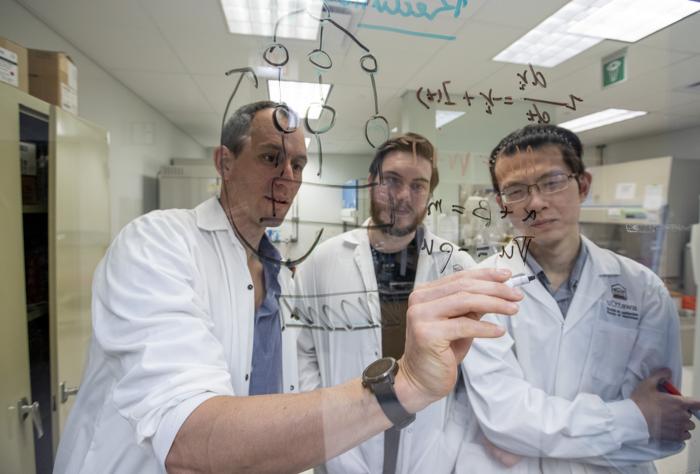The inner workings of the human brain are a gradually unraveling mystery and Dr. Richard Naud of the University of Ottawa’s Faculty of Medicine has led a highly compelling new study that brings us closer to answering these big questions. The study’s results have important implications for theories of learning and working memory and could potentially help lead to future developments in artificial intelligence (AI) since AI developers and programmers watch the work of Dr. Naud and other leading neuroscientists.

Credit: University of Ottawa
The inner workings of the human brain are a gradually unraveling mystery and Dr. Richard Naud of the University of Ottawa’s Faculty of Medicine has led a highly compelling new study that brings us closer to answering these big questions. The study’s results have important implications for theories of learning and working memory and could potentially help lead to future developments in artificial intelligence (AI) since AI developers and programmers watch the work of Dr. Naud and other leading neuroscientists.
Published in Nature Computational Science, the study tackles the many-layered mystery of the “response variability” of neurons, brain cells that use electric signals and chemicals to process information and greenlights all the remarkable aspects of human consciousness.
The findings unveil the nuts and bolts of how neuronal variability is controlled by dendrites, the antenna that reach out from each neuron to receive synaptic inputs in our own personal neural communication networks. The rigorous study establishes properties of dendrites potently control output variability, a property that’s been shown to control synaptic plasticity in the brain.
“The intensity of a neuron’s response is controlled by inputs to its core, but the variability of a neuron’s response is controlled by the inputs to its little antennas – the dendrites,” says Dr. Naud, an Associate Professor at the Faculty of Medicine’s Department of Cellular and Molecular Medicine and the uOttawa Department of Physics . “This study establishes more precisely how single neurons can have this crucial property of controlling response variability with their inputs.”
Dr. Naud suspected that if a mathematical framework he’d used to describe the cell body of neurons was extended to take their dendrites into account, then they might have luck efficiently simulating networks of neurons with active dendrites.
Cue the contribution of Zachary Friedenberger, a PhD student at the Department of Physics and a member of Dr. Naud’s lab, with a background in theoretical physics to solve the theoretical challenges and the math in a record time. Fast forward to the completed study: The predictions of the model were validated by analysis of in vivo recording data and observed over a wide range of model parameters.
“He managed to solve the math in a record time and solved a number of theoretical challenges I had not foreseen,” Dr. Naud says.
Dr. Naud believed that their technique could provide insight on the neuronal response to variable inputs. So they began working on a technique that would be able to compute statistics from a neuronal model with an active dendrite.
One of the work’s reviewers noted that the theoretical analysis “provides key insight into biological computation and will be of interest to a broad audience of computational and experimental neuroscientists.”
Journal
Nature Computational Science
DOI
10.1038/s43588-023-00580-6
Method of Research
Data/statistical analysis
Subject of Research
Cells
Article Title
Dendritic excitability controls overdispersion
Article Publication Date
27-Dec-2023




